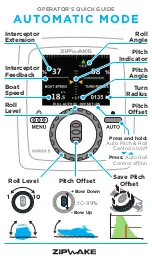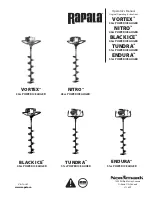
29
4.2 CHECKING THE FORCE TRANSDUCER
The myograph force transducer is a strain gauge connected to a Wheatstone bridge. The force transducers for each
chamber are housed in a separate, protective compartment (see figure 4.3 below). While the protective cover offers
some mechanical protection for the force transducers, they are still very vulnerable to applied forces exceeding 1
Newton (100 grams) or fluid running into the transducer compartment due to insufficient greasing of the transducer
pinhole (see “Figure 4.6 Close-up of transducer pin from outside” on page 31).
Transducer house
If the force readings on the Interface appear unstable or noisy, then first check that the chambers are connected
properly to the Interface and that the chambers are plugged all the way into the interface.
If the force reading(s) are still unstable or noisy, then perform a new calibration of the force transducer as described
in ”Chapter 3 - The Interface Menus” on page 17 and “4.1 Calibration of the force transducer” on page 27.
During the new calibration, monitor the relative force reading values in the FORCE CALIBRATION sub-menu on the
Interface (Steps 4 and 5 of the calibration procedure):
If the value is 0, a single digit, or above 6500, then the force transducer is broken and needs to be replaced.
If the message “OFF” is displayed on the main page of the Interface even though the chamber is plugged in at the
rear of the interface, then the force transducer is broken and needs to be replaced. In addition, if the force reading(s)
appear yellow in color, cannot be reset to zero, AND the transducer cannot be recalibrated, then the force transducer
is broken and needs to be replaced.
If any other problems related to the force transducer are encountered, please contact DMT for advice or further
instructions.
Figure 4.3 Illustration of the proper transducer house











































